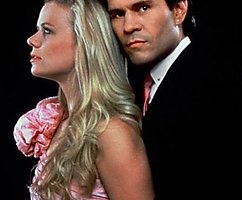Why is the "wrong" leaders - most successful
 Bashny.Net
Bashny.Net
Ask any management guru, and he will tell you that the most successful organizations, leaders will certainly match the corporate culture of the company. CEO of, which is most concerned with a particular result, it is better to get a company that focuses on quantitative indicators, and the leader, people-oriented, should look for a company where more important involvement and participation.
Then everything went smoothly, fluently and clearly, employees understand what is expected of them and how to want to have to carry on. But Alex Fradera writes a blog of the British Psychological Society, it is not so. BPS draws attention to a new study that shows that a leader should not reflect the culture: on the contrary, it should be added that what is missing in this culture
.
Chad Hartnell and his colleagues studied management in 120 technology companies and asked managers to assess their general directors on such indicators as the lead in goals (for example, "encourages the use of common rules") and the lead in the relationship ( "friendly and ready to talk"), and evaluate the same parameters for the culture of their organization. The researchers wanted to find out which combination of leadership and corporate culture brings economic results, and measured it nine months later.
These data show that about any line and say no: mismatch always gave the best results. Companies where the culture was closely "tied" to building relationships, were more efficiently under the guidance of leaders with low ratings in this area, and the heads of top rated in working with people performed better in a culture where these things give less importance. A similar pattern was on the part of the focus on solving the problems: a combination of culture, result-oriented, and a leader, based on the result, paradoxically, resulted in a worse outcome.
Why is that? When the leader of culture and focused on the same thing, the head of the extra effort in many ways. If the company is accustomed to competition and high standards and is traditionally "sharpened" the result, additional efforts to increase the head of this result is not much to add. Culture as to replace the leader. His task therefore - to bring something new, something was missing. For example, attention to people in a culture that strictly follows the rules and quantitative indicators.
See also: Dan Kennedy: How to succeed in business, breaking all the rules
What do successful people in the last 10 minutes of their working day
Hartnell and his colleagues point: their findings do not mean that it is imperative to appoint to senior positions irrelevant, not their respective people. Rather, you need to think in general about what the organization needs at one time or another. And managers themselves, who have successfully run the business until a certain time, must wonder whether the company has learned the lessons that she taught a leader, and there's time to change their leadership not install it and offer something new ...
Then everything went smoothly, fluently and clearly, employees understand what is expected of them and how to want to have to carry on. But Alex Fradera writes a blog of the British Psychological Society, it is not so. BPS draws attention to a new study that shows that a leader should not reflect the culture: on the contrary, it should be added that what is missing in this culture
.

Chad Hartnell and his colleagues studied management in 120 technology companies and asked managers to assess their general directors on such indicators as the lead in goals (for example, "encourages the use of common rules") and the lead in the relationship ( "friendly and ready to talk"), and evaluate the same parameters for the culture of their organization. The researchers wanted to find out which combination of leadership and corporate culture brings economic results, and measured it nine months later.
These data show that about any line and say no: mismatch always gave the best results. Companies where the culture was closely "tied" to building relationships, were more efficiently under the guidance of leaders with low ratings in this area, and the heads of top rated in working with people performed better in a culture where these things give less importance. A similar pattern was on the part of the focus on solving the problems: a combination of culture, result-oriented, and a leader, based on the result, paradoxically, resulted in a worse outcome.
Why is that? When the leader of culture and focused on the same thing, the head of the extra effort in many ways. If the company is accustomed to competition and high standards and is traditionally "sharpened" the result, additional efforts to increase the head of this result is not much to add. Culture as to replace the leader. His task therefore - to bring something new, something was missing. For example, attention to people in a culture that strictly follows the rules and quantitative indicators.
See also: Dan Kennedy: How to succeed in business, breaking all the rules
What do successful people in the last 10 minutes of their working day
Hartnell and his colleagues point: their findings do not mean that it is imperative to appoint to senior positions irrelevant, not their respective people. Rather, you need to think in general about what the organization needs at one time or another. And managers themselves, who have successfully run the business until a certain time, must wonder whether the company has learned the lessons that she taught a leader, and there's time to change their leadership not install it and offer something new ...
Tags
Personal development
psychology
women
men
relationships
life
happiness
harmony
love
children
money
wealth
success
See also
Money will not give!
How to create a Moon Garden at the dacha
Keanu Reeves:
The practice of "rosebush."
The power of healing is wise - Health at Your Fingertips
Laura Schlessinger: 10 stupid mistakes that women
What man has a woman
HOW TO BECOME A clever woman
A woman who pulls all on himself
Warrior gene - as it appears in both men and women

















